Showing 37–48 of 51 results
-
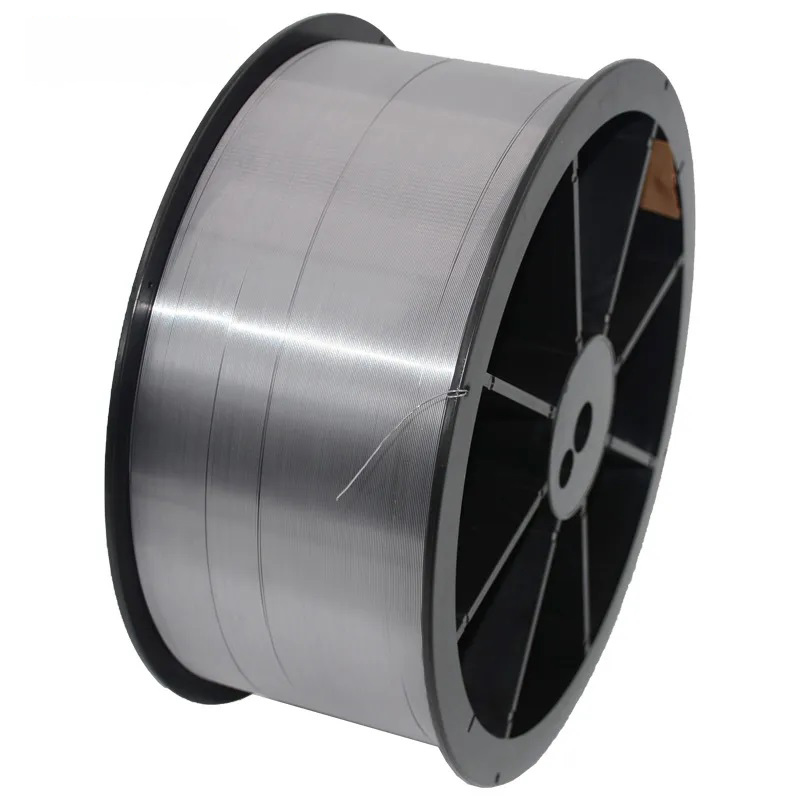
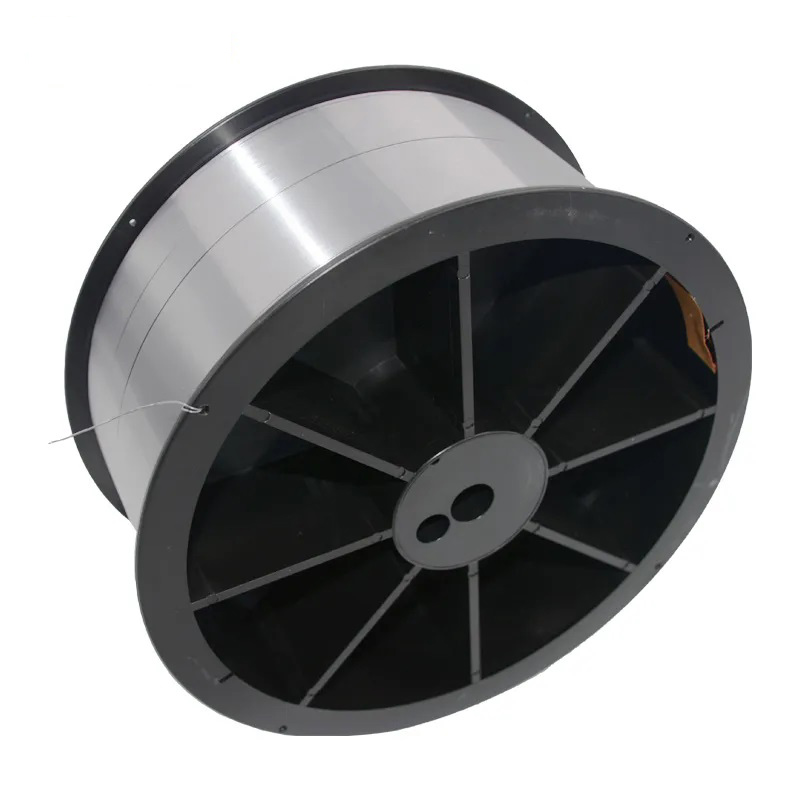
- High Melting Point: Tantalum has a melting point of approximately 3,020°C (5,468°F), which makes it an excellent material for high-temperature applications. This high melting point ensures that tantalum wires can perform effectively in environments where other materials would degrade or melt.
- Excellent Corrosion Resistance: One of the most remarkable properties of tantalum wires is their exceptional resistance to corrosion. Tantalum forms a protective oxide layer on its surface, which prevents corrosion even in highly acidic or alkaline environments. This makes tantalum wires ideal for use in the chemical industry and in environments where exposure to corrosive substances is common.
- Biocompatibility: Tantalum is biocompatible, meaning it does not cause any harm or rejection when implanted into the human body. This property makes tantalum wires ideal for use in medical applications such as implants, surgical devices, and electrodes.
- High Strength and Ductility: Despite its high melting point, tantalum wires maintain high mechanical strength and are highly ductile. This makes them easy to work with in manufacturing processes like wire drawing, while still providing durability under mechanical stress.
- Electrical Conductivity: Tantalum wires have good electrical conductivity, which makes them suitable for use in capacitors, resistors, and other electronic components that require stable and reliable performance.
- Thermal Stability: Tantalum wires maintain stability across a broad range of temperatures, from cryogenic levels to extremely high temperatures. This makes them ideal for applications that demand excellent thermal properties.
-
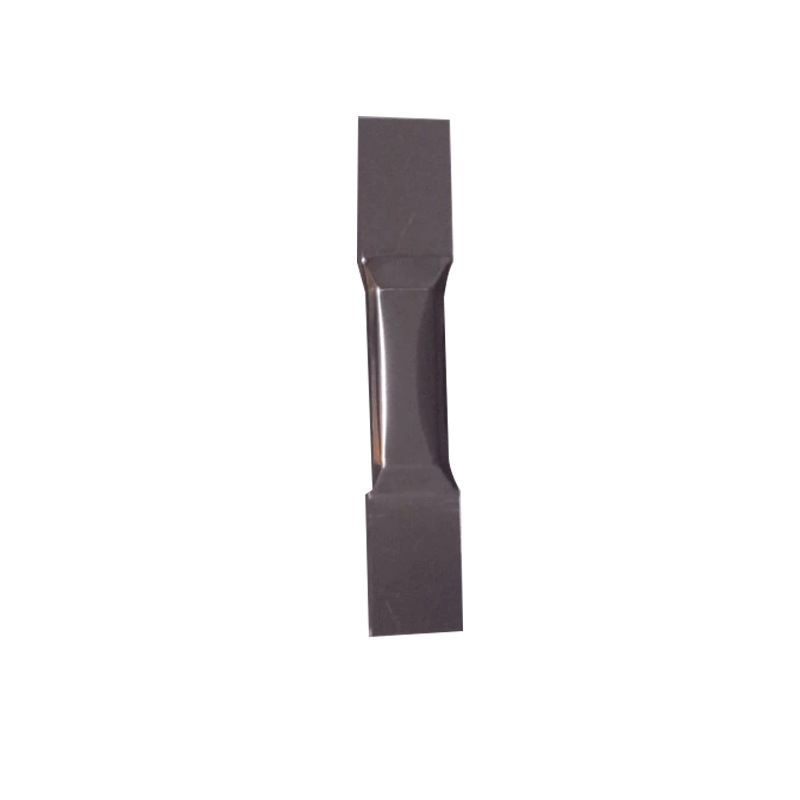
- High Melting Point: With a melting point of 2996°C (5425°F), tantalum boats can operate in extreme high-temperature environments.
- Excellent Thermal Conductivity: Facilitates efficient heat distribution, ensuring uniform material evaporation.
- Corrosion Resistance: Highly resistant to chemical attack, especially from acids like hydrochloric and sulfuric acid.
- Durability: Exceptional mechanical strength and resistance to thermal shock, ensuring a long service life.
- Purity: Manufactured with high-purity tantalum to minimize contamination during evaporation processes.
-
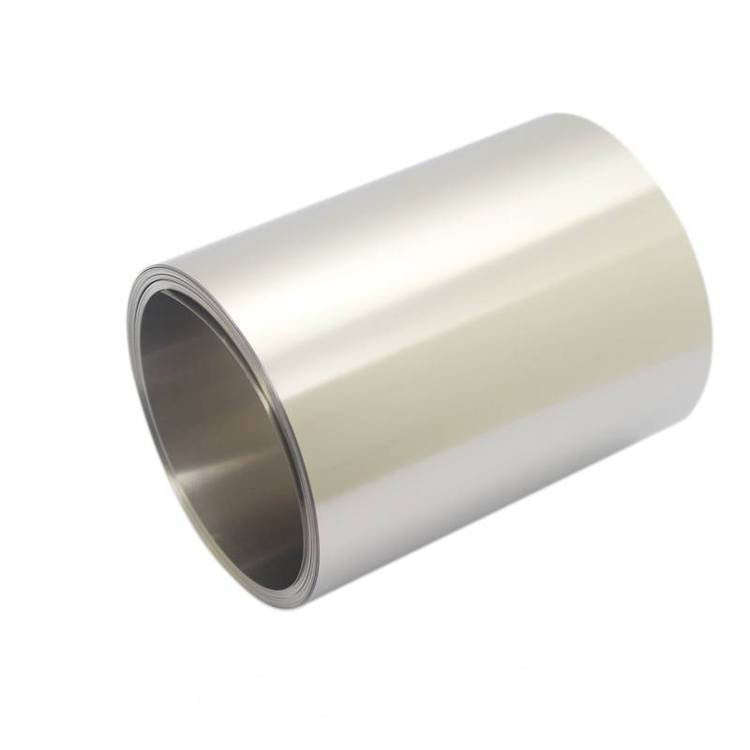
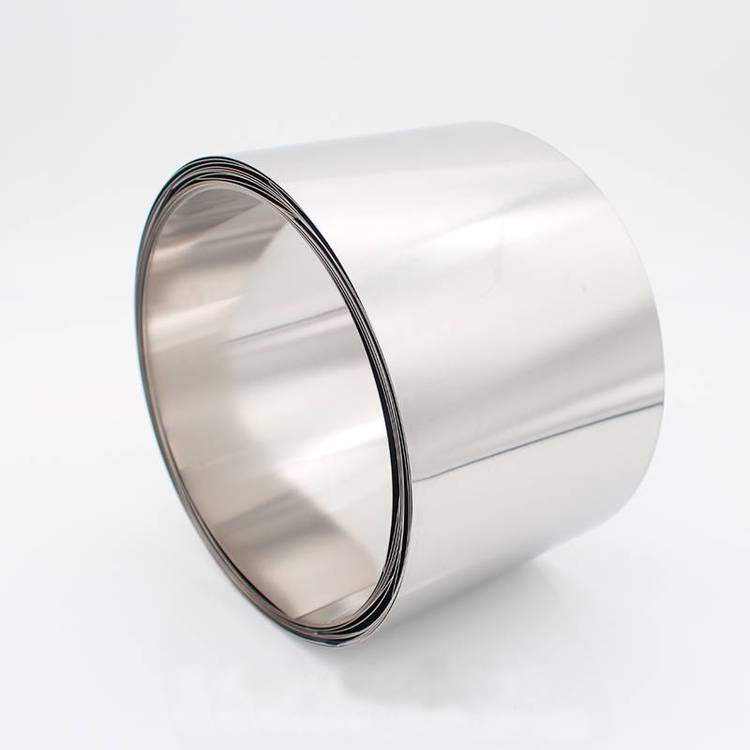
- High Strength-to-Weight Ratio: Titanium foil is known for its excellent strength-to-weight ratio, making it a lightweight yet durable material. This property is especially valuable in industries like aerospace, where minimizing weight while maintaining structural integrity is crucial.
- Corrosion Resistance: One of the standout features of titanium is its exceptional resistance to corrosion. It forms a stable oxide layer on its surface, protecting it from environmental factors such as water, air, and chemicals. This makes titanium foil ideal for use in harsh or corrosive environments.
- High-Temperature Resistance: Titanium foil can withstand high temperatures without compromising its mechanical properties. It remains strong and stable even at elevated temperatures, which is why it is used in high-performance applications like jet engines and chemical reactors.
- Biocompatibility: Titanium is biocompatible, meaning it is non-toxic and compatible with the human body. This makes titanium foil a popular choice for medical implants and devices, as it does not cause adverse reactions in the body.
- Excellent Fatigue Resistance: Titanium foil has excellent fatigue resistance, making it suitable for applications that require materials to endure repeated stress without failure. This property is critical in aerospace, automotive, and other engineering sectors.
- Non-Magnetic: Titanium is non-magnetic, which makes titanium foil a valuable material in electronic and medical devices where magnetic interference can affect performance.
- Formability and Flexibility: Titanium foil is highly malleable and can be easily formed into various shapes. It can be rolled, stamped, or processed to meet the specific needs of different applications, making it versatile in manufacturing processes.
-
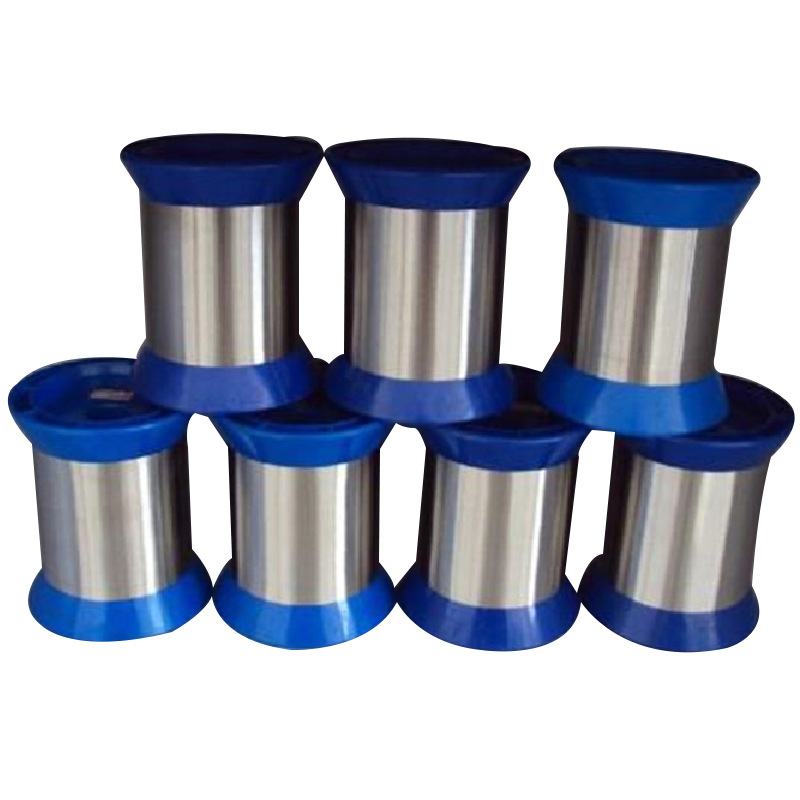
- Durability in Extreme Conditions: Titanium wire retains its properties in extreme temperatures and corrosive environments, ensuring reliable performance.
- Lightweight Design: The low density of titanium wire reduces the weight of structures and components, crucial for aerospace and automotive industries.
- Environmentally Friendly: Titanium is non-toxic and fully recyclable, making it a sustainable material choice.
- Customizability: Titanium wire can be manufactured in various diameters, grades, and finishes to meet specific industry requirements.
- Superior Surface Finish: The wire can be polished or coated to enhance its performance and appearance in specialized applications.
-
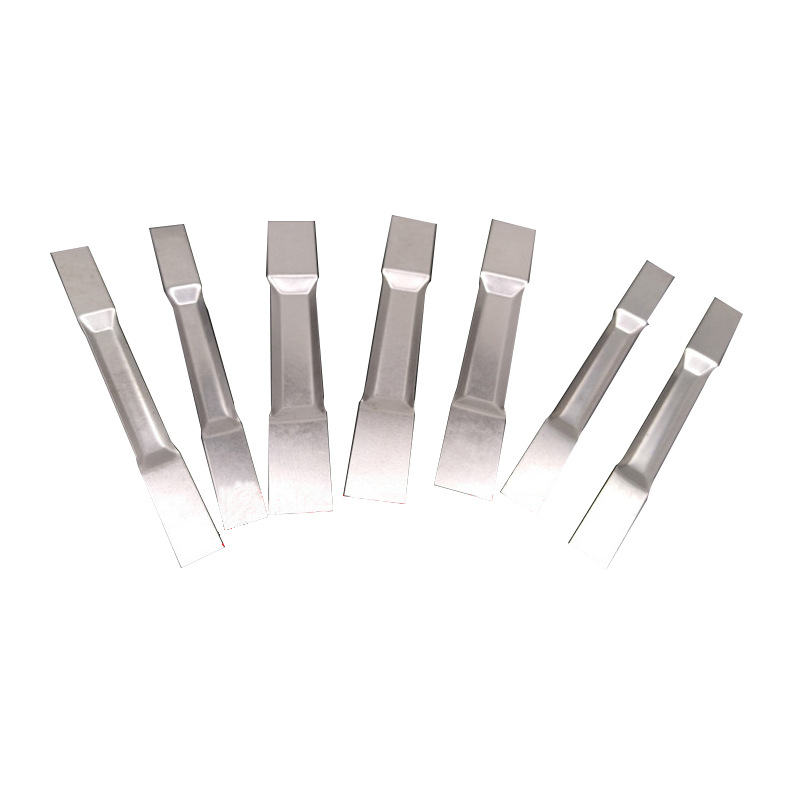
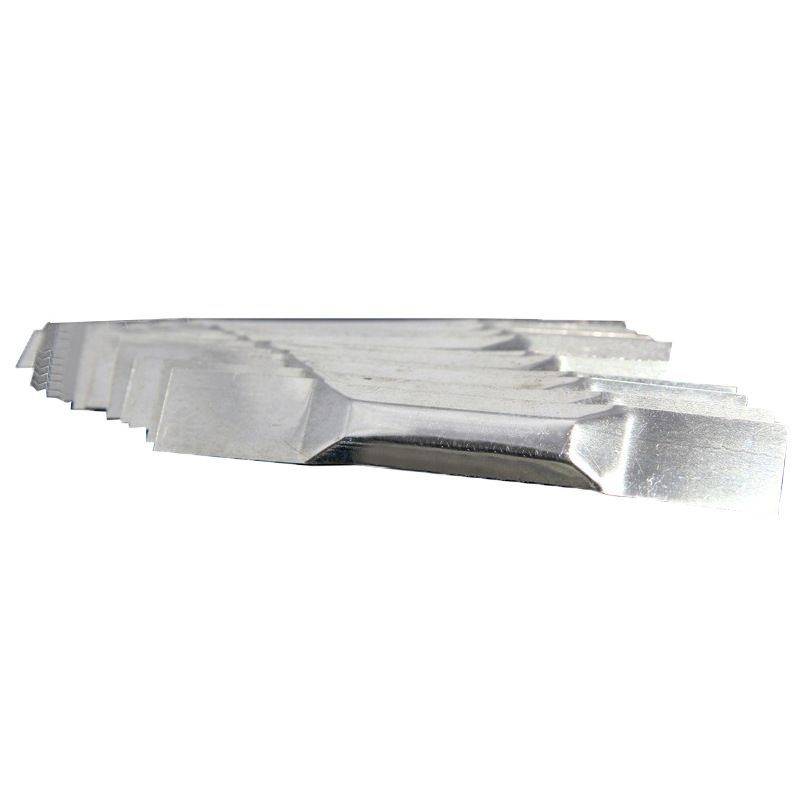
- Long lifespan due to exceptional wear resistance.
- Customizable design for specific applications.
- High purity ensures minimal contamination in sensitive processes.
- Suitable for both batch production and R&D applications.
-
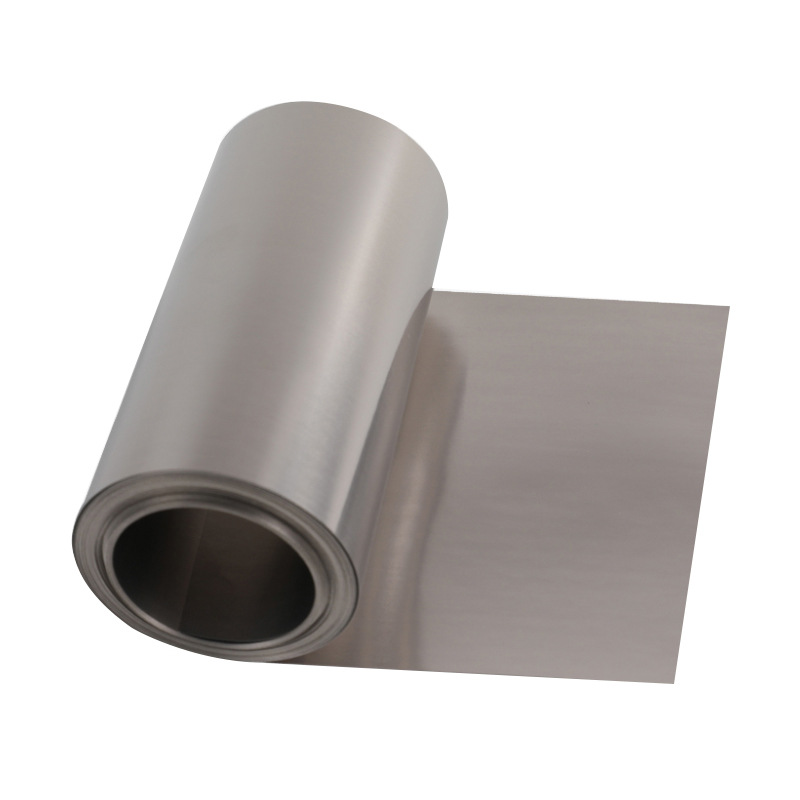
- High Strength-to-Weight Ratio: Vanadium foil is lightweight yet incredibly strong, making it suitable for aerospace and structural applications.
- Corrosion Resistance: Vanadium exhibits excellent resistance to oxidation and corrosion, especially in harsh environments.
- High Melting Point: With a melting point of 1,910°C (3,470°F), vanadium foil is highly resistant to heat, ideal for high-temperature applications.
- Ductility: Vanadium foil is ductile and can be processed into thin sheets or complex shapes without losing its structural integrity.
- Thermal and Electrical Conductivity: Vanadium offers good thermal and electrical conductivity, suitable for energy storage and electrical applications.
- Compatibility with Alloys: Vanadium can enhance the strength and wear resistance of other metals when used as an alloying element.
-
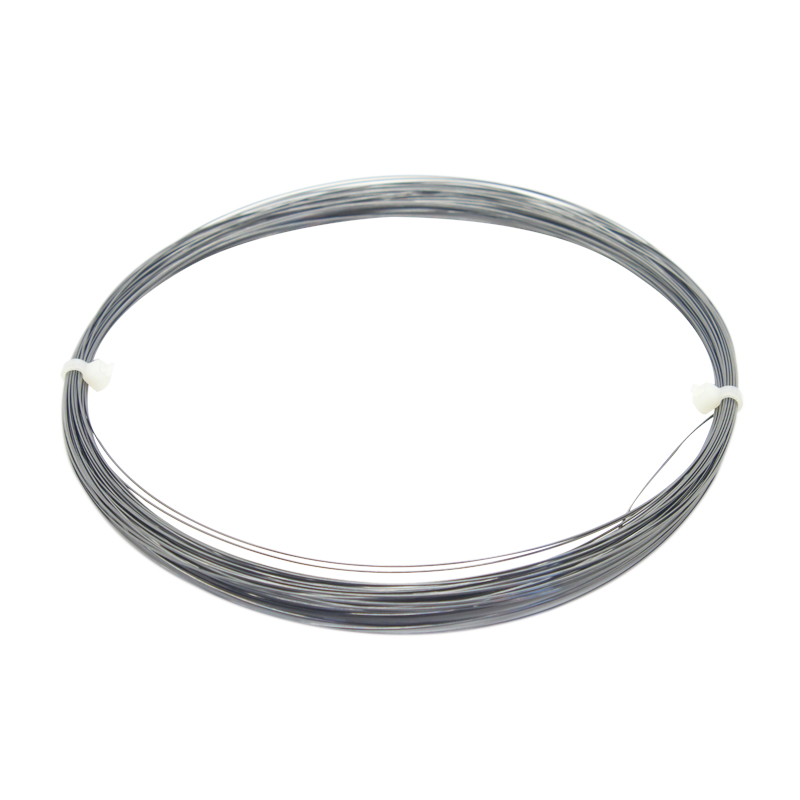
- High Strength and Toughness: Vanadium wire has remarkable strength and toughness, which makes it ideal for applications requiring high endurance and resistance to mechanical stress.
- Corrosion Resistance: Vanadium is highly resistant to corrosion, making it suitable for use in harsh environments, including high-temperature and corrosive applications.
- High Melting Point: Vanadium wire has a high melting point of approximately 1910°C, allowing it to maintain its structural integrity under extreme temperature conditions.
- Good Thermal Conductivity: Vanadium wire exhibits good thermal conductivity, which helps in heat dissipation, especially in high-temperature environments.
- Ductility and Malleability: While strong and durable, vanadium wire remains ductile, which allows it to be easily processed and shaped for a wide range of applications.
- Magnetic Properties: Vanadium has relatively low magnetic susceptibility, which is beneficial in specific industrial and scientific applications that require minimal magnetic interference.
-
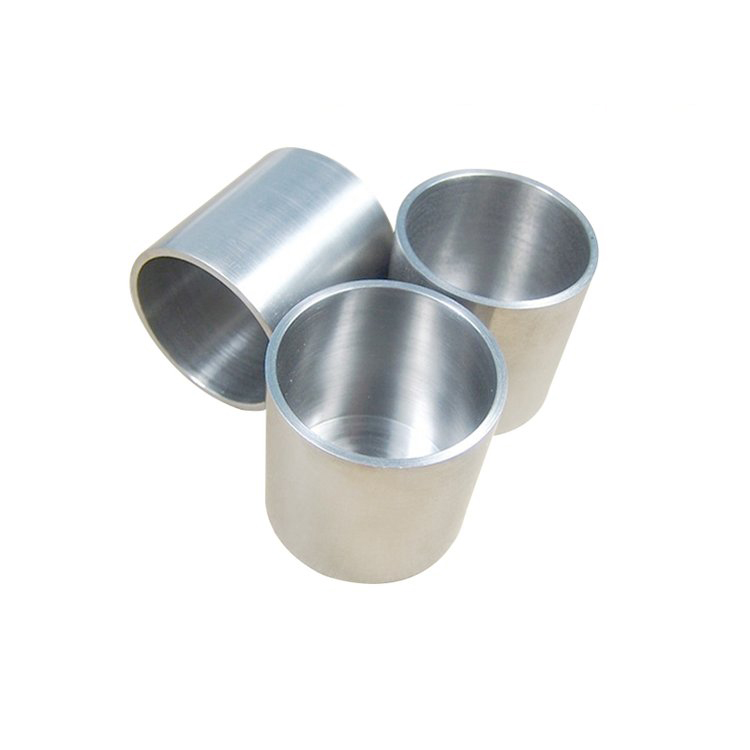
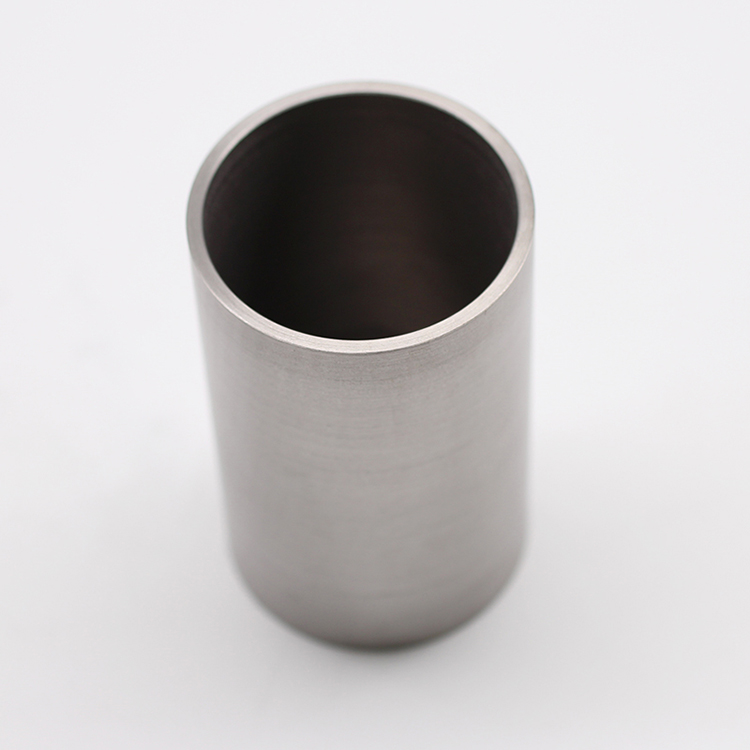
- High Melting Point: Tungsten has the highest melting point of all metals (3,422°C), making it suitable for extreme high-temperature environments.
- Thermal Stability: Excellent ability to withstand high temperatures without warping or breaking, ensuring consistent performance under heat stress.
- Corrosion Resistance: Highly resistant to chemical corrosion, particularly in reducing environments and molten metals, ensuring long-lasting use in aggressive chemical environments.
- Mechanical Strength: Very high tensile strength and hardness, ensuring that the crucible maintains its shape under both thermal and mechanical stress.
- Low Thermal Expansion: Tungsten’s low coefficient of thermal expansion minimizes cracking and deformation when subjected to rapid temperature changes.
- High Thermal Conductivity: Efficient heat distribution within the crucible helps in achieving uniform melting or material processing.
-
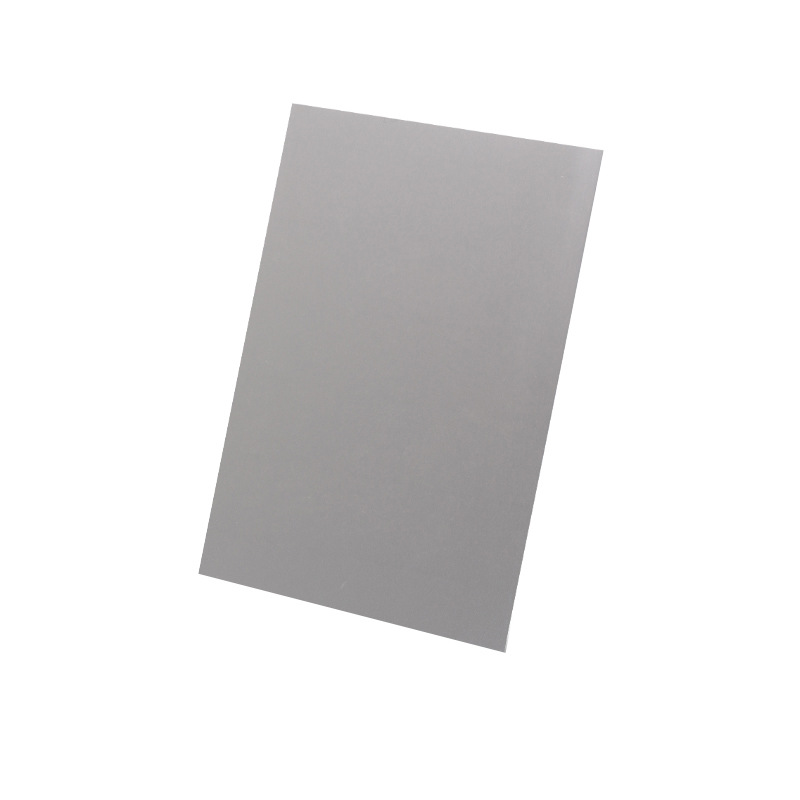
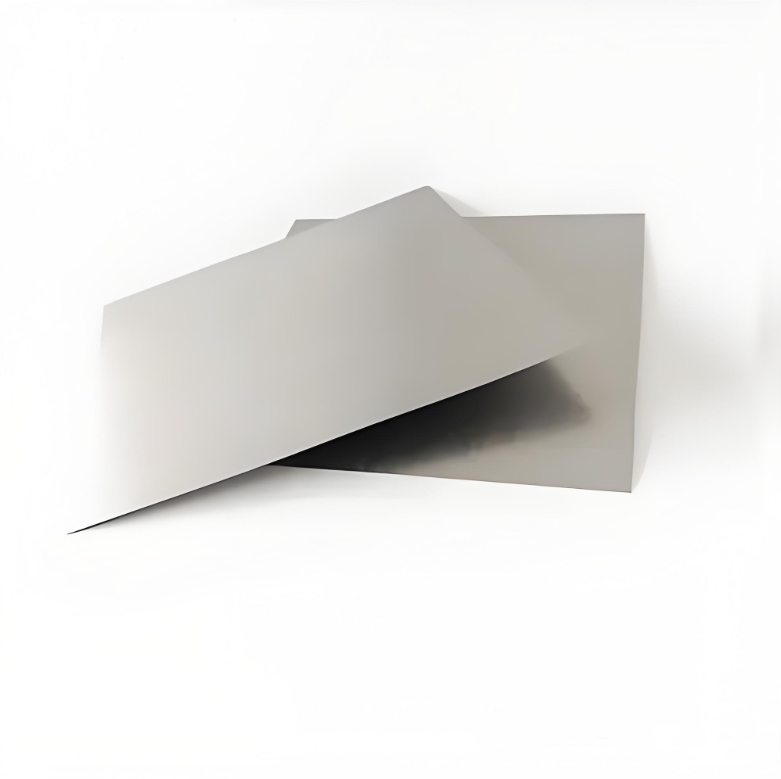
- High Melting Point: Tungsten has the highest melting point of any metal, around 3,422°C (6,192°F). This makes it perfect for high-temperature applications such as heat shields, aerospace components, and vacuum furnaces.
- Excellent Strength: Tungsten foil exhibits outstanding tensile strength, maintaining its integrity even under stress or at elevated temperatures. This property ensures that it is highly durable and reliable for demanding applications.
- Low Thermal Expansion: Tungsten has an extremely low coefficient of thermal expansion (CTE), which means it does not expand or contract significantly when subjected to temperature changes. This is crucial for applications requiring dimensional stability under fluctuating temperatures.
- High Density: With a density of approximately 19.25 g/cm³, tungsten is one of the heaviest metals, giving it excellent mass and stability for a variety of industrial uses.
- Corrosion Resistance: Tungsten is resistant to corrosion in most environments. It is particularly resistant to oxidation, making it suitable for applications in vacuum environments or where high chemical stability is required.
- Biocompatibility: Tungsten is biocompatible and is used in medical implants, surgical tools, and radiation shielding, where its non-reactive nature is a significant advantage.
-
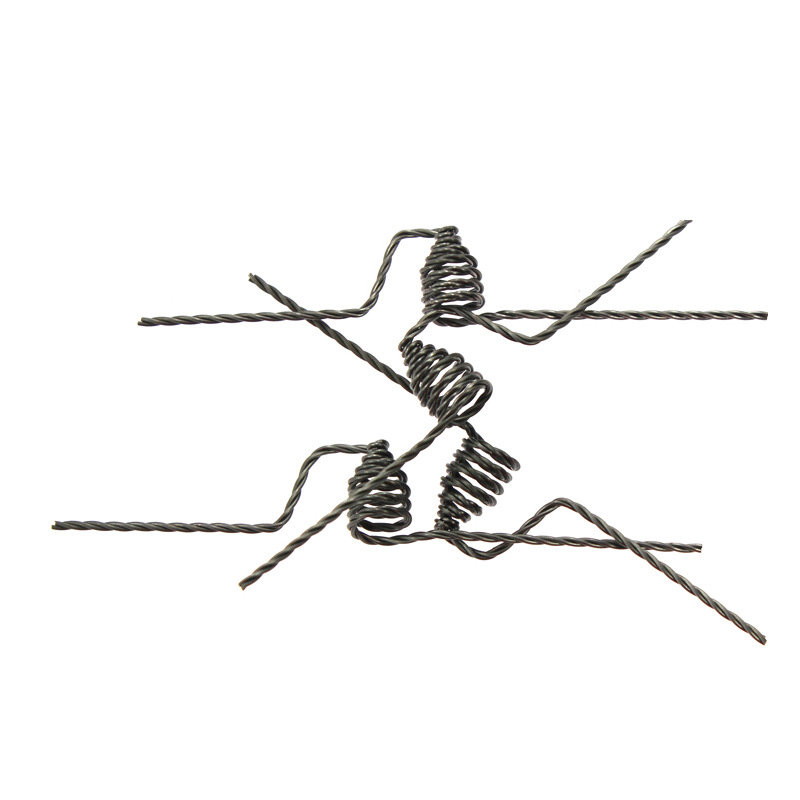
- High Melting Point: Tungsten has one of the highest melting points of any metal, at approximately 3,422°C (6,192°F). This property allows tungsten wire baskets to perform exceptionally well in high-temperature environments, such as in furnaces, aerospace applications, and high-energy industrial processes.
- Excellent Thermal Conductivity: Tungsten’s high thermal conductivity ensures that tungsten wire baskets distribute heat evenly, making them ideal for applications that require precise temperature control or rapid heat dissipation.
- Corrosion and Oxidation Resistance: Tungsten wire baskets exhibit excellent resistance to corrosion and oxidation, especially in environments with high temperatures and reactive gases. This makes them suitable for use in aggressive chemical environments where other metals may degrade.
- Mechanical Strength: Tungsten is known for its high mechanical strength and durability. Tungsten wire baskets can maintain structural integrity under high stress and heavy loads, making them suitable for industrial applications where strength and resilience are paramount.
- Density and Durability: Tungsten is a dense metal, which contributes to its durability and robustness. Tungsten wire baskets are strong yet stable, capable of supporting significant weights without deforming or losing their shape.
- Biocompatibility: Tungsten is biocompatible, making it suitable for use in medical applications. Although tungsten wire baskets are not commonly used in direct contact with biological tissues, their use in medical environments (e.g., sterilization or medical devices) requires biocompatibility.
-
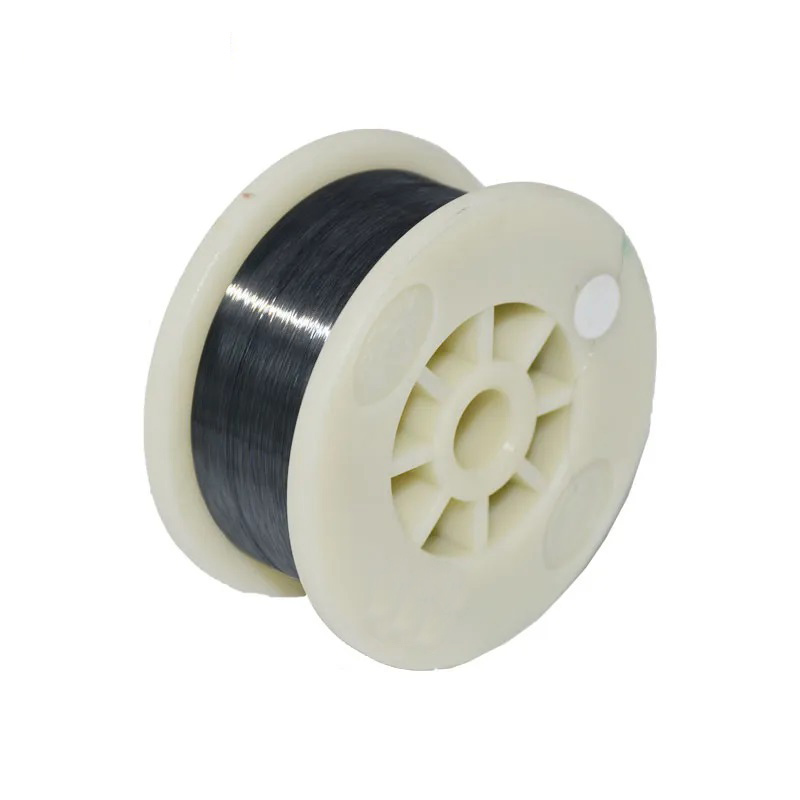
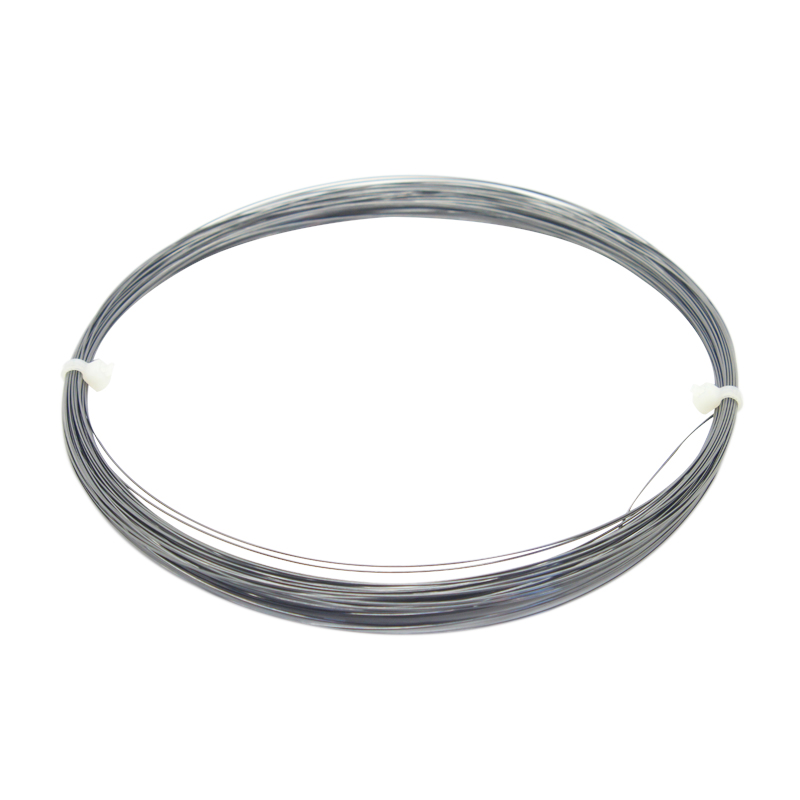
- High Melting Point: With a melting point of 3422°C, tungsten wire is ideal for applications involving extreme heat.
- Exceptional Strength: Maintains high tensile strength even at elevated temperatures.
- High Density: One of the densest metals, offering robustness and durability in demanding conditions.
- Excellent Conductivity: Provides efficient thermal and electrical conductivity for industrial and electronic applications.
- Corrosion and Oxidation Resistance: Resists chemical and environmental degradation, enhancing durability.
- Low Thermal Expansion: Maintains dimensional stability under temperature fluctuations.
- Customizability: Available in various diameters, purities, and finishes to meet diverse requirements.
-
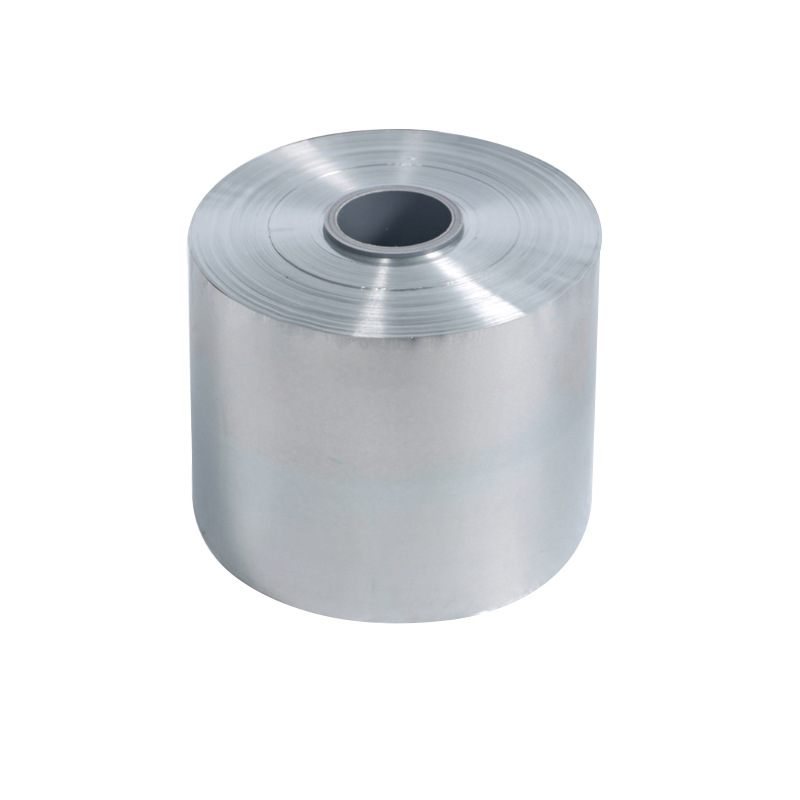
- Corrosion Resistance: Zinc is known for its excellent corrosion resistance, especially in moist environments. It forms a protective oxide layer that shields the material from further corrosion, making it ideal for use in outdoor and harsh environmental conditions.
- Electrical Conductivity: Although not as conductive as copper or aluminum, zinc foil still offers good electrical conductivity, making it suitable for applications in electrical components, such as batteries and capacitors.
- Thermal Conductivity: Zinc has relatively high thermal conductivity, making zinc foil useful in heat dissipation applications, particularly in electronics and industrial processes where temperature control is critical.
- Malleability and Flexibility: Zinc foil is highly malleable, allowing it to be easily shaped and fabricated into thin, flexible sheets. This makes it suitable for a variety of industrial applications requiring precise material manipulation.
- Non-Toxicity and Biocompatibility: Zinc is a biocompatible metal, meaning it can be used in medical and food-related applications without adverse effects. It is also non-toxic, which adds to its safety and versatility in various industries.
- Antimicrobial Properties: Zinc has natural antimicrobial properties, making zinc foil valuable in applications where hygiene and contamination control are critical, such as in medical equipment and food packaging.


















